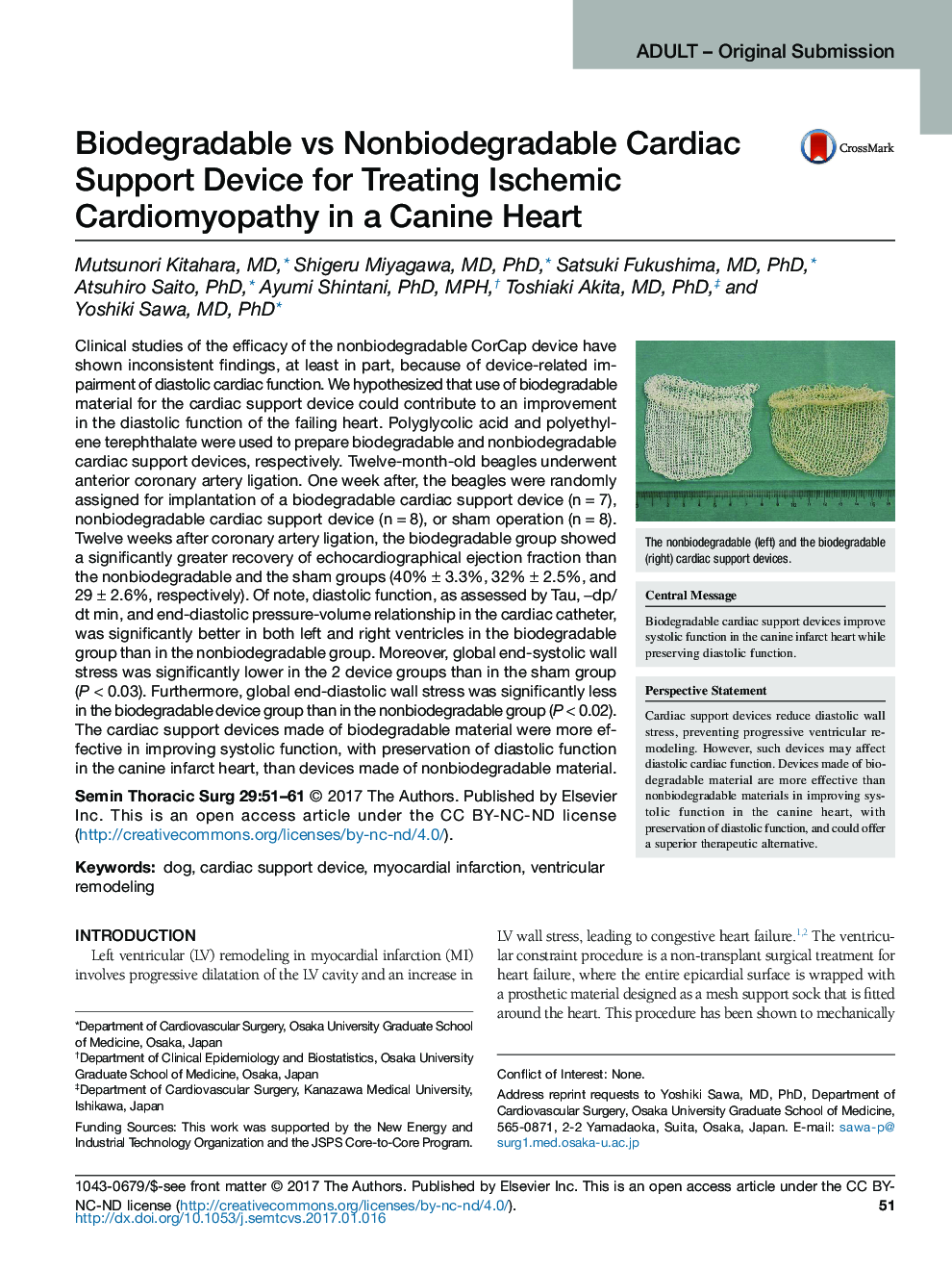| Article ID | Journal | Published Year | Pages | File Type |
|---|---|---|---|---|
| 5621508 | Seminars in Thoracic and Cardiovascular Surgery | 2017 | 11 Pages |
Clinical studies of the efficacy of the nonbiodegradable CorCap device have shown inconsistent findings, at least in part, because of device-related impairment of diastolic cardiac function. We hypothesized that use of biodegradable material for the cardiac support device could contribute to an improvement in the diastolic function of the failing heart. Polyglycolic acid and polyethylene terephthalate were used to prepare biodegradable and nonbiodegradable cardiac support devices, respectively. Twelve-month-old beagles underwent anterior coronary artery ligation. One week after, the beagles were randomly assigned for implantation of a biodegradable cardiac support device (nâ=â7), nonbiodegradable cardiac support device (nâ=â8), or sham operation (nâ=â8). Twelve weeks after coronary artery ligation, the biodegradable group showed a significantly greater recovery of echocardiographical ejection fraction than the nonbiodegradable and the sham groups (40%â±â3.3%, 32%â±â2.5%, and 29â±â2.6%, respectively). Of note, diastolic function, as assessed by Tau, âdp/dt min, and end-diastolic pressure-volume relationship in the cardiac catheter, was significantly better in both left and right ventricles in the biodegradable group than in the nonbiodegradable group. Moreover, global end-systolic wall stress was significantly lower in the 2 device groups than in the sham group (Pâ<â0.03). Furthermore, global end-diastolic wall stress was significantly less in the biodegradable device group than in the nonbiodegradable group (Pâ<â0.02). The cardiac support devices made of biodegradable material were more effective in improving systolic function, with preservation of diastolic function in the canine infarct heart, than devices made of nonbiodegradable material.
